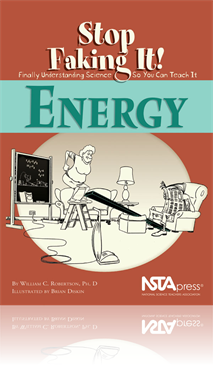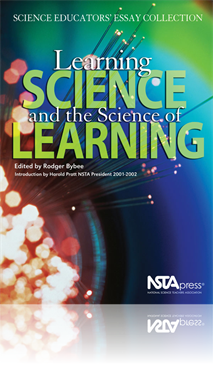All Book Chapters
Book Chapter
Close the Door--You're Letting the Cold In!
Actually no, you aren't letting the cold in when you leave the door open in winter. That's a common misconception that will be gently put to rest in this chapter. There will, however, be a discussion of the tranfer of energy that makes things hott...
Book Chapter
Energy transformations take place all over the Earth without humans ever getting involved. Being the control freaks that we are, though, we spend a lot of time trying to direct those energy transformations to make our lives easier. This chapter is ...
Book Chapter
In Which We Describe Motion and Then Change It
As far as inanimate objects are concerned, if you know what the object is doing and know all the things that will affect that object, you can predict what the object will be doing at a later time. That's useful for lots of things, such as flying pla...
Book Chapter
There's No Such Thing as Gravity--The Earth Sucks
What happens when you drop an object on the ground? Though it might not be obvious, the object speeds up as it falls. That means it's accelerating and there must be a force acting on it. The force that's acting on it is--all together now--gravity. In...
Book Chapter
How Students Learn and How Teachers Teach
In this chapter, the author explores the relationship between learning theories and teaching practices. It compares three features of scientific and educational theories, provides an overview of some historically noteworthy learning theories and the ...
Book Chapter
Assessment involves an ongoing investigation of student learning that influences teachers’ planning and instruction. Multiple assessment strategies should be used to provide feedback to students and teachers. Such strategies include questioning, co...
Book Chapter
Curriculum Reform, Professional Development, and Powerful Learning
The authors consider the important relationship between standards-based curriculum implementation and professional development. They begin by looking at the key recommendations about student learning and then discuss how curriculum materials can embo...
Book Chapter
Professional Development and How Teachers Learn: Developing Expert Science Teachers
Groundbreaking research on learning and cognition has produced many new insights into how people learn. These findings conclusively dispel the idea that short-term and isolated learning experiences can produce powerful learning. This is especially tr...
Book Chapter
Applying the Science of Learning to the Education of Prospective Science Teachers
Cognitive scientists have studied the highly organized and efficiently utilized characteristics of experts’ knowledge in thinking and problem solving. The authors discuss the important implications of this body of research for how instruction shoul...
Book Chapter
Scientific Inquiry, Student Learning, and the Science Curriculum
What we know about student learning establishes links between scientific inquiry and the science curriculum. In this chapter, the author discusses scientific inquiry and the current learning research. He then proposes that the science curriculum shou...
Book Chapter
Supporting the Science-Literacy Connection
Language arts and science are perceived as competing for classroom time and attention, and science is often neglected. However, effective literacy instruction need not be at the expense of meaningful science instruction. The authors explore the poten...
Book Chapter
Reaching the Zone of Optimal Learning: The Alignment of Curriculum, Instruction, and Assessment
The authors discuss curriculum, instruction, and assessment and how their integration enables students to achieve a strong knowledge base in science. After examining conventional beliefs and more contemporary views of curriculum, instruction, and ass...
Book Chapter
Alignment of Instruction with Knowledge of Student Learning
A series of classroom vignettes and student conversations provides a glimpse into how our theoretical understanding of human learning translates into science classroom practice. The surprisingly large number of components operating in an effective cl...
Book Chapter
Learner-centered science teaching begins with the stories of learners. Knowing our students, and thereby crafting lessons that account for their interests, experiences, and ambitions, can make science teaching vastly more effective. Whether studying ...
Book Chapter
Using the Laboratory to Enhance Student Learning
Typical hands-on, cookbook laboratory experiences do an extremely poor job of making apparent and playing off students’ prior ideas, engendering deep reflection, and promoting understanding of complex content. This chapter addresses how to transfor...




